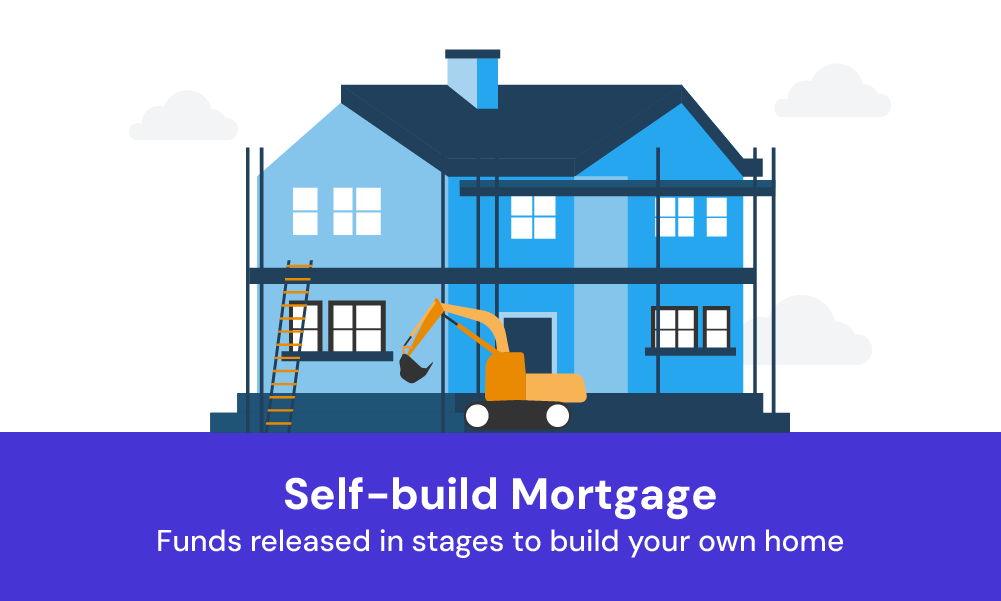- What Are Specialist Mortgage Lenders?
- Who Needs a Specialist Mortgage Lender?
- How Do Specialist Mortgage Lenders Work?
- Why Use a Specialist Mortgage Broker?
- What Types of Mortgages Do Specialist Lenders Offer?
- Other Mortgages Specialist Lenders Offer
- How to Find the Best Specialist Mortgage Lender
- Are Specialist Mortgages More Expensive?
- Key Takeaways
- The Bottom Line
What You Need to Know About Specialist Mortgage Lenders

When it comes to finding the right mortgage lender, not everyone fits into the standard high street lending rules.
If you’re self-employed, have bad credit, or need a more customised mortgage, it can feel frustrating when your bank says “no.”
But don’t worry – specialist mortgage lenders can help.
These lenders focus on people who don’t meet the usual criteria set by regular banks.
In this article, we’ll explain what specialist mortgage lenders are, how they work, and why you might need one.
Whether you’re buying a property, remortgaging, or investing in a buy-to-let, we’ll cover everything you need to know to find the best specialist lender for your situation.
What Are Specialist Mortgage Lenders?
Specialist mortgage lenders are financial institutions that cater to borrowers who don’t fit the strict criteria of high street banks. They take a personalised approach, looking at your full financial picture.
Instead of relying on automated systems that follow strict rules, they use human underwriters to assess your entire financial situation, giving you a more personal approach.

Who Needs a Specialist Mortgage Lender?
People who find it challenging to get approved by a mainstream lender. The reasons for this could vary widely, but common situations include:
- Self-Employed or Contractors – Traditional lenders prefer steady, predictable income, which often makes it harder for self-employed people, freelancers, or contractors to qualify for a mortgage.
- Bad Credit History – If you’ve had issues like missed payments, defaults, or even bankruptcy, getting a mortgage through high street banks can be nearly impossible. Specialist lenders are more willing to work with people with adverse credit.
- Unusual Income Sources – If you earn from commission, bonuses, or benefits, a specialist lender can take these into account where a traditional lender might not.
- Low Deposit – Specialist mortgage lenders may offer products that allow for a lower deposit, making it easier to get on the property ladder.
- Complex Property Purchases – Whether you’re purchasing a buy-to-let, a commercial property, or an overseas home, specialist lenders are equipped to handle these more complex transactions.
- Age restrictions – Some specialist lenders are more flexible with age limits, which can be helpful for older borrowers.
How Do Specialist Mortgage Lenders Work?
Specialist mortgage lenders assess your application differently from mainstream banks.
Here’s a closer look at how they work:
- Manual Underwriting – Unlike traditional banks that use automated systems, specialist lenders have a human underwriter review your financial details. This gives you more flexibility, as your situation is looked at more personally.
- Bespoke Solutions – Specialist lenders know that everyone’s circumstances are different. They offer solutions that fit your needs, whether you’re self-employed, have bad credit, or need a mortgage for a unique property.
- Higher Interest Rates – Because specialist lenders take on more risk, their interest rates are usually higher. But they give you the opportunity to get a mortgage that might not be available through regular lenders.
Why Use a Specialist Mortgage Broker?
Finding the right specialist mortgage lender can be tricky. Many of these lenders don’t appear on comparison sites, and your bank likely won’t point you in their direction.
This is where a specialist mortgage broker can help.
- Access to Lenders. Many specialist lenders only work with brokers. A broker can connect you to lenders that you wouldn’t find on your own.
- Expert Advice. A broker understands how specialist lending works. They can guide you through the process, help with paperwork, and make sure your application is solid.
- Time-Saving. Searching for the right mortgage can take a lot of time, especially if your situation is unique. A broker does the hard work for you, finding options that suit your needs.

What Types of Mortgages Do Specialist Lenders Offer?
Specialist mortgage lenders cater to a wide range of borrowers with specific needs.
Some of the most common types of specialist mortgages include:
- Bad Credit Mortgages: These are designed for people with a poor credit history, such as defaults, missed payments, or County Court Judgements (CCJs). Bad credit mortgage lenders look beyond your credit score to assess your overall financial situation.
- Self-Employed Mortgages: If you’re self-employed, proving your income can be a challenge with traditional lenders. Specialist lenders take a more detailed look at your income, considering factors like business profits and future earnings potential.
- Contractor Mortgages: Contractors often have fluctuating income, which can make securing a mortgage difficult. Specialist lenders provide mortgage solutions that take into account your day rates and contract length, offering a tailored approach to affordability.
- Buy-to-Let Mortgages: Buy-to-let mortgages allow you to purchase a property to rent out. Specialist lenders often have more flexible criteria, especially for landlords with large portfolios, expats, or those looking to rent out short-term lets like holiday homes.
- Commercial Mortgages: If you’re looking to buy a property for business use, a specialist commercial mortgage lender can help. These lenders understand the intricacies of commercial lending, offering tailored solutions for business owners.
- Right-to-Buy and Help-to-Buy Mortgages: Specialist lenders offer mortgage products for those looking to take advantage of government schemes like Right to Buy and Help to Buy.

Other Mortgages Specialist Lenders Offer
Specialist lenders don’t just help with bad credit or self-employment. They also offer a range of mortgages for more specific needs. Here are some other options available to you:
- Construction Mortgages. These mortgages are designed for buying properties under development or renovation. Specialist lenders offer terms suited to the cash flow needs and timelines of construction projects.
- Professional Mortgages. If you work in fields like medicine, law, or accountancy, you could qualify for a professional mortgage. Lenders may offer more flexible terms, recognising your job’s stability and future earnings, with higher loan amounts or lenient income rules.
- HMO Mortgages. Planning to invest in a House in Multiple Occupation (HMO)? These mortgages are more complex than buy-to-let loans, as lenders consider both the property and the rental income. Specialist lenders offer tailored options for HMOs.
- Mortgage Protection. This helps cover your repayments if you’re unable to work due to illness, injury, or redundancy. Specialist lenders offer tailored plans to suit those with irregular income or high-risk jobs.
- Second Charge Mortgages. If you already have a mortgage but need extra funds, a second charge mortgage allows you to borrow against your property. This is useful if you don’t want to remortgage or face penalties with your current lender.
- Second Home Mortgages. Want to buy a holiday home or a second property? Specialist lenders offer mortgages tailored to those purchasing a second home, often with more flexible terms than high street lenders.
- Mortgages for Low Income. If you’re on a lower income, specialist lenders consider a wider range of income sources like benefits or part-time work that mainstream lenders may overlook.
- Lifetime Mortgages. Aimed at older homeowners, this type of mortgage lets you release equity from your home without moving. Specialist lenders provide flexible repayment terms, with the loan often repaid after the homeowner passes away or the property is sold.
- Large Mortgages. For high-value properties, specialist lenders offer large mortgages with flexible terms. These are ideal if you have a complex financial situation or multiple income streams.
- Self-Build Mortgages. If you’re building your own home, self-build mortgages release funds in stages as your project progresses. Specialist lenders offer products suited to the unique risks involved in building a property from scratch.

How to Find the Best Specialist Mortgage Lender
Finding the right specialist mortgage lender doesn’t have to be difficult. Here are a few simple steps you can follow:
- Compare Interest Rates. Specialist lenders often charge higher interest, but it’s still worth shopping around. Your broker can help you find a deal that suits you.
- Check Eligibility. Each lender has its own requirements. Make sure you know what documents and proof of income you’ll need before applying.
- Use a Specialist Mortgage Broker. As mentioned earlier, brokers can give you access to lenders that aren’t available on comparison sites. They know the market and can save you time by finding the best lender for your situation.
Are Specialist Mortgages More Expensive?
Yes, specialist mortgages often come with higher interest rates.
This is because specialist lenders take on more risk by lending to people with complex financial situations. But, that doesn’t mean you can’t find a good deal.
A mortgage broker can help you find competitive rates even if you need a more tailored mortgage product.
In many cases, working with a specialist lender is a stepping stone to securing a mortgage from a high street lender in the future.
Once your financial situation improves – such as rebuilding your credit score or establishing a longer history of self-employment income – you may be able to remortgage to a lower rate with a mainstream lender.
Key Takeaways
- Specialist mortgage lenders offer tailored options for people who don’t meet the strict rules of high street banks, like those who are self-employed or have bad credit.
- Common types of specialist mortgages include bad credit, self-employed, contractor, buy-to-let, and commercial mortgages. These lenders are more flexible with unique financial situations.
- Specialist lenders use human underwriters to review applications, giving you a more personalised assessment.
- Interest rates with specialist mortgages are usually higher due to the added risk, but they give you the chance to get a mortgage when traditional banks might reject you.
- Specialist mortgage brokers help connect you to lenders not found on comparison sites, offering expert advice.
- Other specialist mortgage options include professional, self-build, HMO, lifetime, second charge mortgages, and those for low income or high-value properties.
The Bottom Line
Specialist lenders give you more personalised mortgage options when traditional banks can’t. But finding the right one can feel tough without the right support.
- Access to lenders not found on comparison sites
- Expert advice that suits your financial needs
- Save time by letting someone else handle the research and paperwork
- Better chance of finding a good deal
If you want to save time and reduce stress, get in touch. We’ll connect you with a trusted broker who can help with your specific mortgage needs.
Get Matched With Your Dream Mortgage Advisor...

Frequently asked questions
What is the difference between a specialist mortgage lender and a high street lender?
Specialist lenders provide tailored mortgage solutions for people with unique circumstances, while high street lenders use stricter criteria and automated systems.
Can I get a mortgage with bad credit?
Yes, specialist lenders offer bad credit mortgages for those with adverse credit histories. They take a broader view of your financial situation.
Do I need a broker to access a specialist mortgage lender?
In most cases, yes. Many specialist lenders work exclusively through brokers, so using a broker will give you access to a wider range of lenders.
What’s the difference between a private lender and a specialist mortgage lender?
A private lender uses their own money to give loans. They often don’t follow the same rules as banks or specialist lenders. These loans can be flexible but are riskier, as they don’t always meet standard lending guidelines.
A specialist mortgage lender is different. They offer mortgages to people who don’t qualify with regular banks, like those with bad credit or self-employed.
These lenders are regulated and use human underwriters to assess your application. They follow strict rules, offering you more protection while still providing tailored mortgage options.




